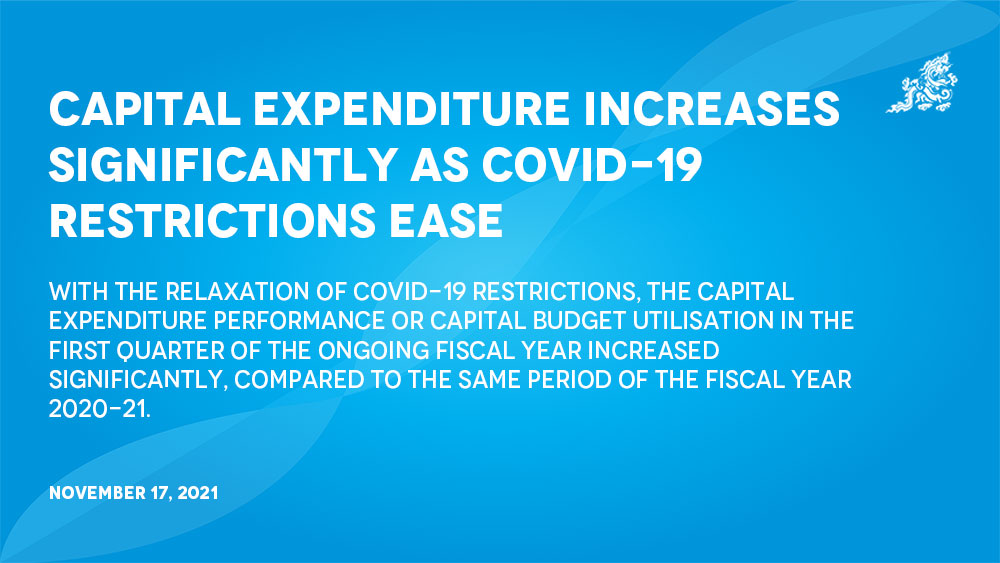MB Subba
With the relaxation of Covid-19 restrictions, the capital expenditure performance or capital budget utilisation in the first quarter of the ongoing fiscal year increased significantly, compared to the same period of the fiscal year 2020-21.
Of the revised capital budget of Nu 39.578 billion (B) for the fiscal year 2021-22, the actual expenditure at the end of the first quarter was Nu 3.924B or 10 percent of the capital budget, according to the Budget Performance Report for the first quarter of the fiscal year 2021-22.
The government had resorted to ramping up spending to offset the impact of the Covid-19, but low capital expenditure rates were affecting the strategy due to Covid-19 restrictions.
The actual capital expenditure in the first quarter of the fiscal year 2020-21 was only 6 percent. In absolute terms, the actual capital expenditure increased by 93 percent compared to the same period for the last fiscal year.
The improvement in the capital budget expenditure has also been attributed to the fiscal policies put in place by the government to mitigate the impact of Covid-19 in the construction sector.
The overall expenditure performance improved by 35 percent as compared to the same period in the last fiscal year.
Finance Minister Namgay Tshering said that although the shortage of skilled workers was one of the major challenges, work projects that could be executed with local workers were prioritised.
“For instance, we prioritised budget allocations for laying of a granular sub-base (GSB) for road work, among other activities,” he said in an interview with Kuensel.
Lyonpo Namgay Tshering said that the government has picked up pace as it was in its fourth year in power. “We don’t stay idle because of Covid-19,” he said.
He said that the government had allocated 33 percent of the total 12th Five-Year Plan capital outlay for the ongoing fiscal year. “We have prioritised capital expenditure over current expenditure to reduce the impact of the pandemic,” he said.
Meanwhile, the current expenditure for the first quarter of the fiscal year (as of September 30) was Nu 8.886B, which is a 5 percent increase as compared to the current expenditure for fiscal year 2020-21.
The increase in current expenditure in the current fiscal year is mainly due to interest payments.
However, the ministry recorded a decrease of 35 percent in operation and management costs.
The Ministry of Finance (MoF) issued a notification on July 6 that extended the austerity measures into the fiscal year 2021-22.
However, the finance minister denied that the government has resorted to austerity measures. “We have rationalised our expenditure,” Lyonpo said.
According to the MoF, the government’s subsidies and grants also decreased by 8 percent in the first quarter. The decrease has been attributed to the rationalisation of current expenditure to reduce wasteful expenditures.
The government has stated that the option to monetise the vehicle quota will be postponed, but without affecting the date of the next allotment. It has deferred all new construction projects and procurement of vehicles.
The government has notified that official travel both within and outside the country should be rationalised within the approved budget, and no hiring of private buildings for office spaces is allowed.


